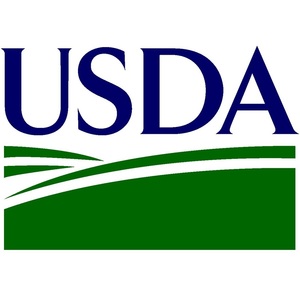Major changes to USDA Biorefinery Assistance Program in new rule

June 29, 2015
BY Erin Krueger
The USDA’s Rural Business Cooperative Service and Rural Utilities Service has published an interim final rule for the Biorefinery, Renewable Chemical, and Biobased Product Manufacturing Assistance Program, formerly known as the Biorefinery Assistance Program. The rule incorporates changes required by the 2014 Farm Bill and comments received on the interim final rule published in February 2011. According to a notice published in the Federal Register, the interim final rule establishes provisions for the loan guarantees available for biorefineries to support the production of advanced biofuels and renewable chemicals and for biobased product manufacturing facilities.
According to the notice, the interim rule includes several major changes to the program. Most significantly, the program is now open to renewable chemical and biobased product manufacturers. In addition, the requirement that the majority of the biorefinery production must be an advanced biofuel in order to be eligible for program assistance has been removed. Additional changes include supplementing the program to include a project-finance framework, implementing a two-phase application progress, overhauling the scoring of applications, and listing interest accrual to 90 days, in most instances, to determining what the guarantee will cover and what can be included in a loss claim.
The Biotechnology Industry Organization has spoken out in support of the program. “BIO worked with Senator Debbie Stabenow, D-Michigan, other members of Congress and the USDA to improve how the 9003 loan guarantee program works for renewable chemical producers and biobased product manufacturers,” said Brent Erickson, executive vice president of BIO’s Industrial and Environmental Section. “If implemented properly, the program will provide greater access to capital and equity for biorefineries that primarily produce renewable chemicals and biobased products—which are made from biomass instead of petroleum. Enabling emerging industrial biotechnology companies that produce renewable chemicals to qualify for USDA loan guarantees will promote investment in innovative biotechnology sector going forward. With growth of renewable chemical and biobased product manufacturing, the United States can maintain its leadership in clean energy and manufacturing, create thousands of high quality U.S. jobs, and reduce dependence on foreign petroleum.
Advertisement
Advertisement
“As USDA’s new study of the economic impact of biobased product manufacturing demonstrates, biobased products are capable of generating new economic opportunities, reducing U.S. reliance on foreign oil, and improving the nation’s environmental health,” Erickson continued. “Biobased products already contribute $369 billion to the U.S. economy each year. The sector directly employs 1.5 million Americans, and creates additional employment opportunities for 2.5 million. The 40,000 biobased products that are currently on the market displace about 300 million gallons of petroleum per year, which is equivalent to taking 200,000 cars off the road.”
Comments on the rule can be submitted online at www.regulations.gov, by mail, or hand delivery. The deadline to comment is Aug. 24. Additional information on how to submit public comments is available on the Federal Register website.
Advertisement
Advertisement
Related Stories
International Sustainability & Carbon Certification has announced that Environment and Climate Change Canada has approved ISCC as a certification scheme in line with its sustainability criteria under its Clean Fuel Regulations.
Legislation introduced in the California Senate on June 23 aims to cap the price of Low Carbon Fuel Standard credits as part of a larger effort to overhaul the state’s fuel regulations and mitigate rising gas prices.
The government of Brazil on June 25 announced it will increase the mandatory blend of ethanol in gasoline from 27% to 30% and the mandatory blend of biodiesel in diesel from 14% to 15%, effective Aug. 1.
The U.S. Court of Appeals for the D.C. Circuit on June 20 rejected several claims challenging the U.S. EPA’s RFS Set rule but will require the agency to provide additional information on certain environmental findings.
The 2025 International Fuel Ethanol Workshop & Expo, held in Omaha, Nebraska, concluded with record-breaking participation and industry engagement, reinforcing its role as the largest and most influential gathering in the global ethanol sector.
Upcoming Events










